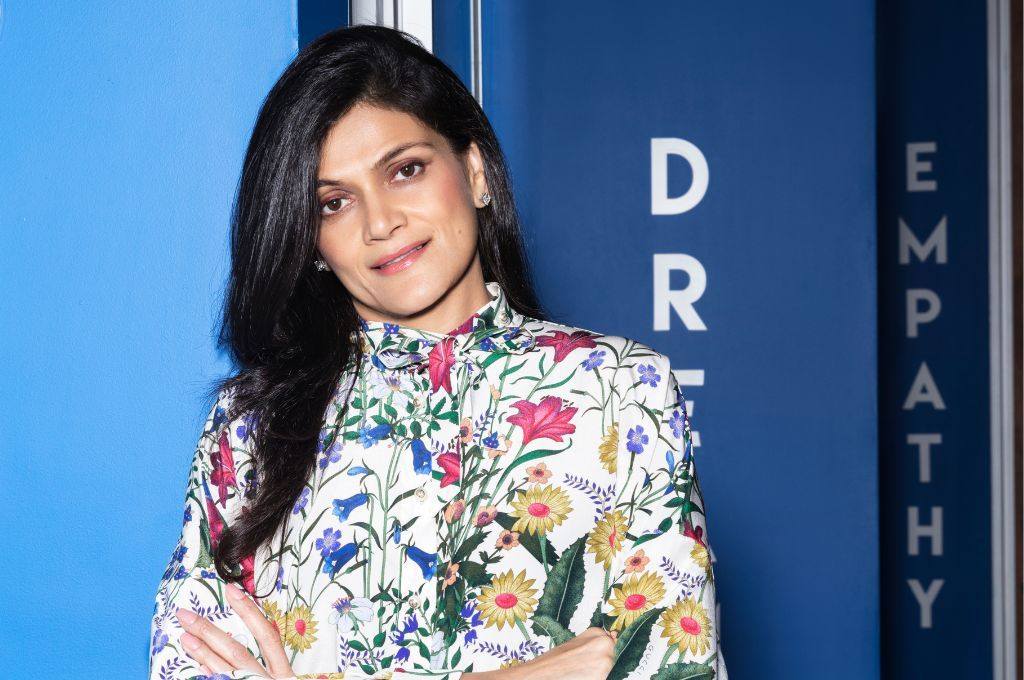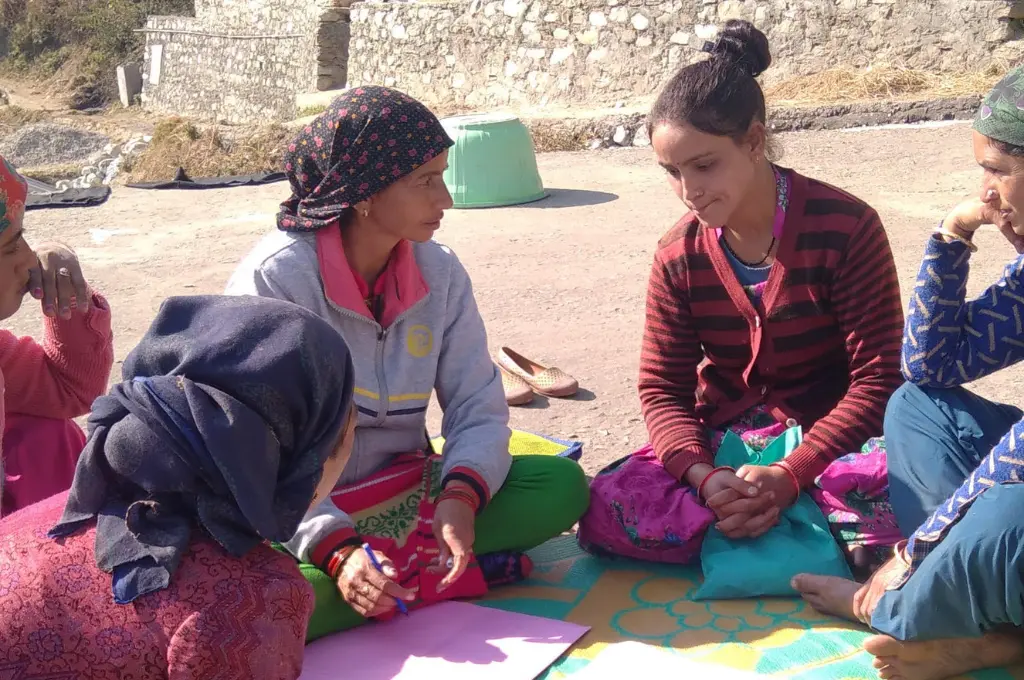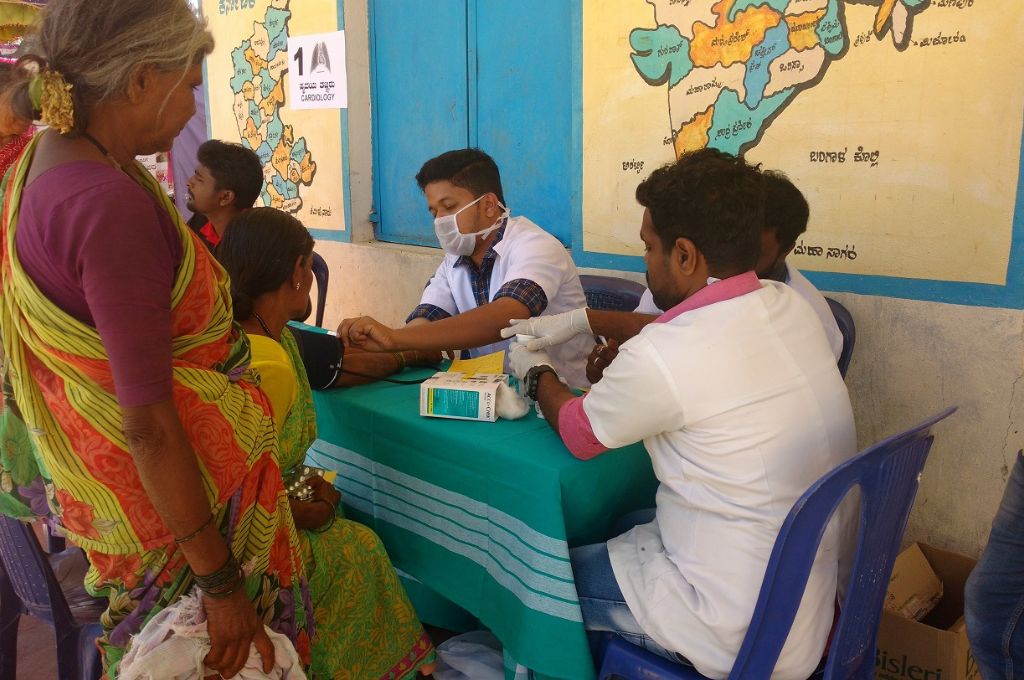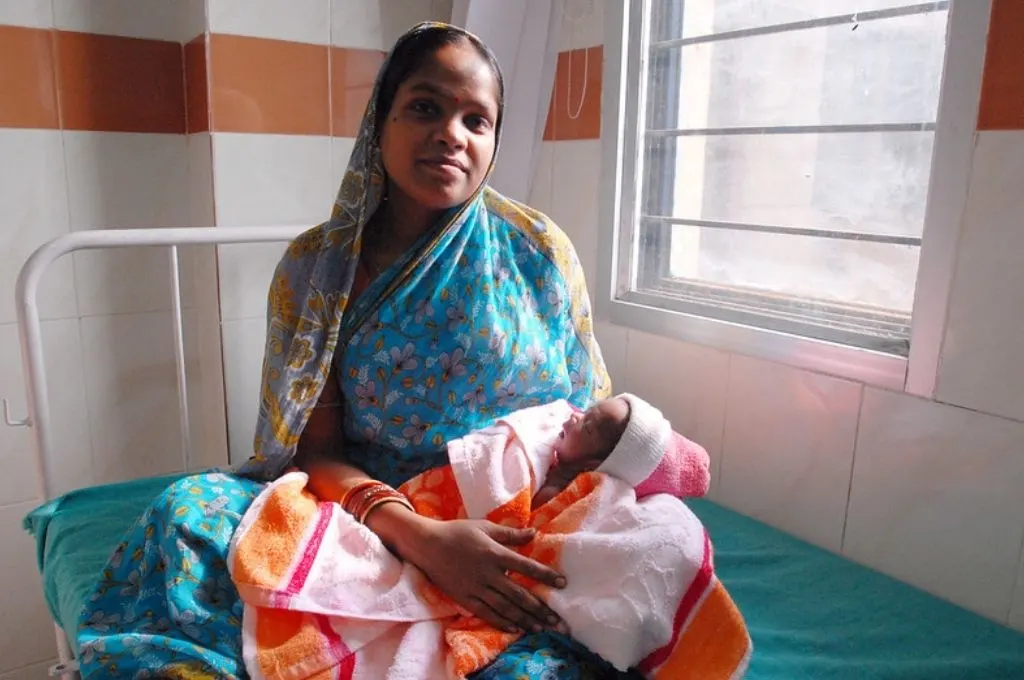Dr Neerja Birla is the founder and chairperson of the Aditya Birla Education Trust (ABET), a social enterprise focused on bringing about change in the fields of education and mental health in India. Under the ABET umbrella, Birla has set up the Aditya Birla World Academy, an international school in Mumbai; the Aditya Birla Integrated School, a school that focuses on creating a holistic and personalised learning environment for children with intellectual and learning difficulties; Mpower, a movement that aims to bring about a positive change in attitudes towards mental health in India; the Aditya Birla Education Academy, for teacher training; and Ujaas, an initiative to support menstrual health awareness and management in the country.
In this interview with IDR, she speaks about the current mental health and education landscape of India, her journey as a social entrepreneur in the space, and why conversations regarding mental health in the country are still taboo.

How did you start on this journey of being a social entrepreneur, as you call yourself? Why did you pick mental health as an issue to focus on? And what were some of the early days like?
I didn’t start out 16 years ago thinking that I would create an organisation focused on mental health. My journey began when I established a school, Aditya Birla World Academy (ABWA) in Mumbai, followed by another—The Aditya Birla Integrated School (TABIS) for children with developmental disabilities.
While working on the two schools and reflecting on my personal experiences, I started to realise that mental health was a field I wanted to work in. The stigma attached with it, combined with the subpar quality of treatment available, made me want to do something in the space, but I kept it at the back of my mind.
Then one day my daughter Ananya and I were having one of those 3 am conversations, and she asked me what was holding me back from starting something. I realised that the combination of having young children and being daunted by the task ahead of us (setting up a first-of-its-kind trust around mental health in India) had prevented me from giving it a shot. After we talked, I decided to change that.
Initially I didn’t follow the textbook method of writing a business plan or developing an organogram, or think about whether it needs assessment. I just jumped straight into it. I started speaking to people, telling them what we wanted to achieve (creating awareness about mental health and providing counselling support), and asking how we should go about it. Our first team was all of three people. We called the initiative ‘Mpower’, and its mandate was to focus entirely on creating a mental health ecosystem in the country. We started with awareness building in January 2016, and three months later we built a centre in Mumbai.
You spoke about the second school, TABIS, being an ‘integrated’ school. It’s not common for people to start with a non-traditional school. So what made you take this decision?
While my children were growing up, I could see their friends who were atypical being pulled out of class. And when I would ask why this child was being picked on, they’d say it is because he’s ‘not normal’, or she’s a very slow learner, or they can’t understand what is being taught. This is the thought process across schools in our country. It’s unfair to label children like that, and that’s how we thought of putting together the integrated school.
Even today a lot of people don’t want to acknowledge that their child may have special needs.
Even today a lot of people don’t want to acknowledge that their child may have special needs; all it means is that the child is learning differently. But parents don’t want that—they can’t accept the fact that the child will not thrive in a mainstream school. The integrated school is just a customised programme. It has all the curricular and extracurricular activities offered by traditional schools, but parents are still not open to the idea. In fact, I feel that it’s tougher to get parents to admit their children into an integrated school now than to get them to understand what mental health is.

In the six years that Mpower has been around, what change have you seen? And what did it take to get here?
When we launched our first centre in Kemps Corner in Mumbai six years ago, we organised a press conference. We invited 30 journalists, and guess how many turned up? Two! It was so disheartening. I still remember wondering how we were ever going to pull this off.
Our first move was to reach out to schools; I thought it would be easy to get them on board since the ABWA pastoral care programme, where we provide counselling support to students, was strong and well received. But of the 120 schools that we reached out to around Mumbai, not even one agreed to do a workshop.
What were their reasons?
Taboo. Because the minute you take a mental health awareness workshop, no matter whom it’s for—we were offering it for both children and their parents—it would mean that you are in effect acknowledging that you have a problem. Six years ago, it was such a taboo that schools just refused.
On the corporate front too, I thought we’d find acceptance. But when we reached out to them, not a single corporate came on board. They didn’t assign any value to it, and so didn’t want to spend their time or money on it.
The only segment that took this up wholeheartedly was nonprofits. It was so encouraging for us in those days. They were the early adopters and it was mostly because they didn’t attach stigma to the issue and saw the need for it among the people they served. We have worked with around 400 nonprofits till date. While we offered our services pro bono, the nonprofits invested their time and energy which, given how resource-constrained they all are, was a huge investment at their end.
Today we do workshops with a range of nonprofits—those that work with children in orphanages and remand homes, on anti-trafficking, with transgender people, and so on. These tend to be mental health literacy workshops, where we work with the affected communities themselves but also with the people serving them— their caregivers/caretakers.
In the last six years, has anything changed when it comes to companies and schools?
The pandemic changed things. Finally, companies have started reaching out to us at Mpower. Burnout rates during the last two years have been high, and there has been more awareness about self-care. So now corporates have been asking for our services; they want the helpline service for their employees. Schools are asking for it too.
From an investment point of view, however, people still don’t want to invest in the issue of mental health. You won’t see many philanthropists readily funding this, or corporates dedicating their CSR funds to mental health.
You make an important point because if you want more people to access services, there needs to be money to be able to offer those services. So then how do you get other philanthropists invested in an issue like mental health?
The buy-in has to first happen at the level of the cause. It must be something that you are passionate about, where you feel there is a need. Because for something like mental health, it is difficult to assess impact. It’s not like sanitation, where you are constructing 1,000 toilets, or education, where you are sending 10,000 girls to school. That is very tangible and visible, and hence much easier to garner investment for. It’s difficult to measure or diagnose mental illness and well-being in the first place, so how do you measure the impact of the services you are providing or the change in mental health?
Funders need to understand what mental health does to individuals and to society, and therefore why they must invest in this issue.
One needs to take a step back and think. Mental wellness is a thread that runs through the basic fabric of our being. But we don’t assign enough value to someone’s mental health. And I personally believe that it’s because it cannot be seen; it’s not tangible. And I think the human mind is such that you feel you will manage it somehow. But ultimately, in most cases, there is a biological reason, a physiological reason compelled by circumstances.
It’s like getting fever. If you have COVID-19, for example, you are going to take those five days off. Suffering from a mental health issue is like getting fever of the brain. You’ve got to think about it like that; if your mind is sick, you have to treat it. And you have to give it that much importance.
Funders need to understand what mental health does to individuals and to society, and therefore why they must invest in this issue.
You’ve been doing this for six years, which is not a long time for an issue as hard as this, but you’re among the first ones in the space. What does progress look like to you in your journey?
At this point in time, progress would mean scaling up—both at the level of Mpower itself as well as at the supporting ecosystem level. As Mpower, we need to reach out more, create more awareness so that more state governments take this up, open up more centres. But scale also means increased demand. Can we create more awareness in the ecosystem because of which more people ask for these services and are able to get them easily?
Increased investment in the cause of mental health would also mean progress. We have started collaborating with other companies in terms of their CSR funds and work. However, most of the work is still funded by the Mpower trust.
When you grow, you also need people who are able to deliver the services. What is the talent situation in this space?
Since it’s a niche space, we have seen only those who are really passionate about mental health join the sector. But there aren’t enough trained people available. We need to have much more capacity than what we have now. For instance, we are working with BMC schools on Project Urja where we are opening up 90 centres. This means that, at a minimum, we need that many counsellors.
In order to address some of this, we get people who are interested in this issue on board and train them. We go to different campuses, get counsellors and then train them depending on what the requirement is.
Therefore, money, talent, and general awareness are key to scaling. Because ultimately you need people to demand these services and have it become part of the mainstream set of services that people can avail of.
Is there a role for media with regard to creating awareness?
We definitely need far more conversation around mental health. And media can do a great deal in amplifying the message and the work being done by various people and entities, more so at a regional level. What can the media do so that more people become aware, talk about mental health, normalise it, and make engaging with it aspirational while countering the stigma associated with it? How can we move away from judgement and destigmatise the various facets of mental health? For all of this to happen, the media has a huge role to play.
* Neerja Birla was a speaker at the AVPN Global Conference 2022, where she spoke about ‘Strengthening Mental Healthcare Across Asia.’
—





